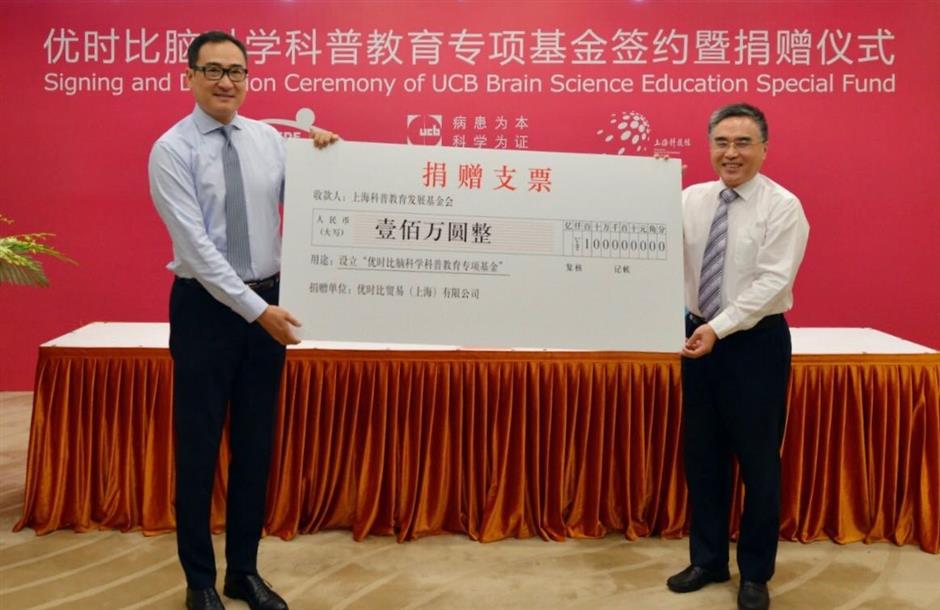Fund set up to promote brain science education
A fund for brain science education was set up on Sunday at Shanghai Science and Technology Museum to promote public education on brain science, particularly among the young generation.
The 1 million yuan (US$150,000) UCB Brain Science Education Special Fund was donated by UCB China to Shanghai Science Education Development Foundation. UCB is a global biopharmaceutical company that focuses on such areas as neurology.
The fund will be used for upgrading the brain science education display at the museum's Human and Health Exhibition, as well as public education programs on brain science.
The museum’s Human and Health Exhibition area, one of the most popular exhibition areas of the museum, has been in operation for about 16 years. Many of the exhibits are now considered dated, with some explanatory concepts requiring a fresh look.
The museum is undergoing a project to gradually renovate the exhibition area to bring the latest knowledge on science and technology to visitors. The renovation includes creating a section on brain science to better illustrate the latest developments with interesting displays and interactions, said Wang Xiaoming, curator of the museum.
UCB China will take advantage of its close relationship with the world’s leading neuro-scientists to bring the latest trend and ideas in brain science to the museum’s renovation project.
“As a pharmaceutical company, we invest a lot in research and development to develop better medication,” said Wu Xin, managing director with UCB China. “But we also noticed that many patients are suffering from difficulties from society, which are beyond medical treatment.”
Wu took epilepsy, a disease with about nine million patients in China, as an example. Because its symptoms like vigorous shaking, the disease often comes with social stigma, while some parents or teachers might even worry children with epilepsy might infect others in schools, said Wu.
“Usually patient educations on brain related diseases are conducted in hospitals,” said Wu. “But this time in the museum, we can contribute to let more public, more children to learn about our brains, how to prevent related diseases, and how to treat patients with such diseases with more understanding.”
















